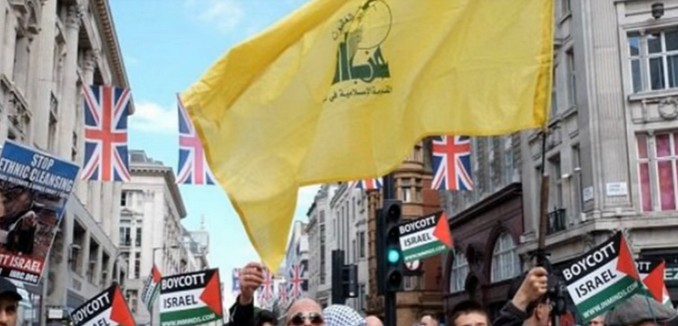Germany has rejected a key United States demand to designate the Lebanon-based Shiite militia Hezbollah as a terrorist organization in its entirety as part of talks to rein in the nuclear program in Iran, Benjamin Weinthal reported for Fox News on Tuesday.
Two sources familiar with the ongoing negotiations between the U.S. and European countries over the Iran nuclear deal, said that the government of German Chancellor Angela Merkel was the “least cooperative” of the three European powers.
Germany is resisting the U.S. position on Hezbollah – to make no distinction between the group’s political and military wing, which their leaders confirmed is artificial – because German diplomats believe that any concessions should be tied to the Israeli-Palestinian peace talks. Up to 950 Hezbollah members are believed to reside in Germany, where they raise funds and are recruiting members.
U.S. officials have met with European officials in London, Berlin and Paris over the last few weeks as part of efforts to fix the nuclear agreement with Iran. The sources said that Germany views the Trump administration as too pro-Israel.
Germany’s reluctance to designate Hezbollah, Iran’s proxy, as a terrorist organization may be related to growing economic relations between Iran and German. Their exports to the Islamic Republic of Iran climbed to €3.5 billion ($4.3 billion) in 2017, from €2.6 billion (about $3.2 billion) in 2016.
When asked about Germany’s position, a U.S. State Department spokesperson reiterated Trump’s demands from January: “They should designate Hezbollah — in its entirety — as a terrorist organization.”
The spokesperson said that “we are working closely with our European partners to address our shared concerns with the JCPOA and Iran’s malign behavior.” He added that the U.S. has “discussed the six non-nuclear/regional issues that the president also identified and called for stronger steps from our European allies.”
In addition, the spokesman noted, the U.S. expects the Europeans to “cut off funding to the Islamic Revolutionary Guard Corps [IRGC], its militant proxies, and anyone else who contributes to Iran’s support for terrorism.” The Trump administration designated the IRGC a terrorist organization in October.
U.S. allies should “join us in constraining Iran’s missile development and stopping its proliferation of missiles, especially to Yemen,” the official said, adding that European countries “should join us in countering Iran’s cyberthreats” and “should help us deter Iran’s aggression against international shipping.”
Lastly, the spokesperson stated that the European powers “should pressure the Iranian regime to stop violating its citizens’ rights. And they should not do business with groups that enrich Iran’s dictatorship or fund the Revolutionary Guard and its terrorist proxies.”
Reflecting on the flaws of the nuclear deal, the official said that “the deal’s greatest flaw is that its restrictions sunset over time, leaving Iran free in the future to pursue industrial scale nuclear fuel enrichment, an important step in achieving a rapid nuclear weapons breakout capability.”
The Trump administration has given European countries until May 12 to work with the U.S. to improve the Iran deal. If no agreement is reached, the U.S. will pull out of the deal and likely reimpose a harsh sanctions regime.
The State Department spokesperson said: “This is a last chance. In the absence of a commitment from our European allies to work with us to fix the deal’s flaws, the United States will not again waive sanctions in order to stay in the Iran nuclear deal. And if at any time the president judges that agreement is not within reach, the United States will withdraw from the deal immediately.”
The German foreign ministry declined to answer questions about its alleged recalcitrant behavior.
[Photo: SS News / YouTube]




